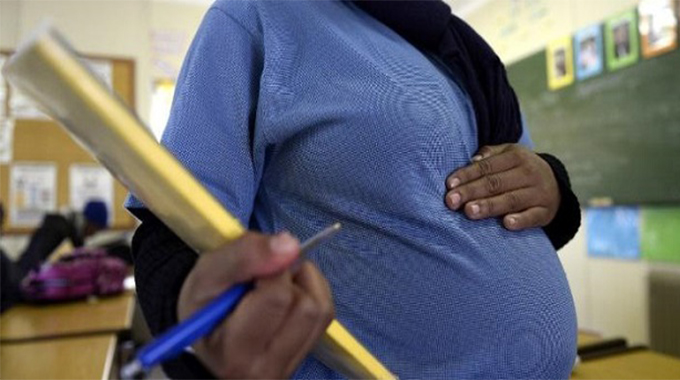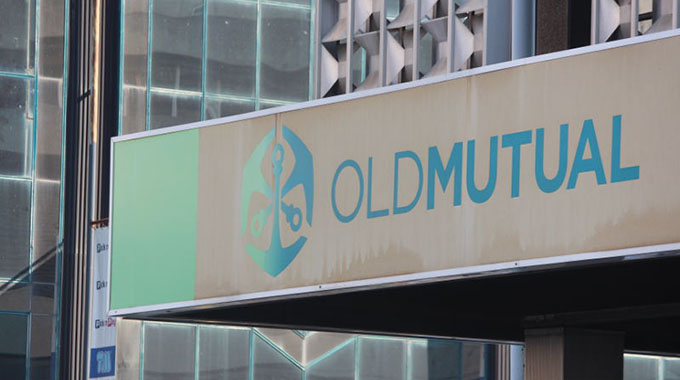Spare a thought for disabled pregnant rural girls

Thandeka Moyo- Ndlovu, Senior Health Reporter
A HEAVILY pregnant 18-year-old Mercy* moves around her father’s tiny homestead located in Dula area in Umzingwane district with her swollen sad face speaking nothing but hopelessness.
She is seemingly deep in thought but no one can easily decode the source of her distress as she is hearing impaired.
When her mother succumbed to HIV 11 years ago, she was forced to drop out of school and take care of her father who has been in and out of hospital since then.

HIV
For the past two years, her father has been bed-ridden and since the two have no means of income, poverty has been part of her life while her plight is worsened by the fact that she lives in one of the neglected rural homes with a disability.
Now that she is pregnant and about to deliver in two months’ time, her future is bleak because the father of the unborn child is unknown.
Through sign language, she managed to give her neighbours a hint of who took advantage of her circumstances to abuse her but the culprit has since left the village.
Mercy is one of the Zimbabwean girls who continue being sexually violated without any action from responsible authorities.
Language barriers also mean the man responsible for her pregnancy may evade justice and probably nothing will be done to rescue her from a failed future.
Although she is part of Alpha Teen Group, which helps children living with HIV with information and food, Mercy’s predicament even puts the life of her unborn child at risk.
Chronicle visited Mercy who was in filthy rags and barefooted and is staying with her paternal uncle who said the family was in dire need of food, money, clothing and psycho-social support to help Mercy recover.
“I am taking care of Mercy as her father is critical and admitted to Mtshabezi Hospital. The man responsible for this pregnancy took advantage of my niece’s disability and HIV status,” he said.
The uncle said there was no money to even buy food and medication for his sick brother.

medication
“Now I have the burden of my sick brother, his daughter and this unborn child. We did not have any school for children with special needs, which explains why she dropped out of school as the teachers could not help her,” he said.
The uncle said Mercy does not have decent clothes of her own and nothing for the unborn child.
“As you can see, my niece does not even have a pair of shoes, this homestead is dilapidated, I cannot even afford to provide them with decent meals as I am unemployed myself,” he added.
“I do not know what will happen to my brother but am more worried about my niece, her future gives me sleepless nights.”
Alpha Teen founder and co-ordinator Ms Sitheni Ncube said Mercy’s plight is one of the worst she has encountered in her bid to save children living with HIV.
“I heard about Mercy from a villager who revealed that she is hearing impaired and taking care of a bed-ridden father. I discovered that the girl who is now 18 has been living under very tough conditions as a girl child and sadly she is pregnant,” said Ms Ncube.
She said her efforts of ensuring they have at least one decent meal a day will not solve even a quarter of Mercy’s problems.
“They have no food and the hut they live in is not even fit for human habitation, her story is just sad,” said Ms Ncube holding back tears.
According to Musasa Project nearly 41 percent of females and seven percent of the males aged below 18 had unwanted first sexual intercourse.

teen pregnancies
Between the period 2020 to date Musasa Project has handled 604 reported cases of teen pregnancies.
Statistics from The Ministry of Health and Child Care show that from January to June, of the 267 teenage pregnancies recorded in Matabeleland South, a majority of them were reported in Umzingwane (61) and Beitbridge (60) followed by Bulilima (58), Matobo (57), Gwanda (51) and Mangwe (48).
The lowest pregnancies were recorded in Insiza, which had a total of 31 girls aged below 16 giving birth.

GBV
Besides the high number of teenage girls getting pregnant, Matabeleland South also has the highest HIV prevalence in Zimbabwe where women and girls with disabilities continue to face intersecting forms of discrimination due to their disabilities and negative cultural norms as well as religious beliefs.
These factors increase their vulnerability and put them at a higher risk of gender-based violence (GBV), sexual and gender-based violence (SGBV), Harmful Practices (HPs), poverty and marginalisation.
Community leaders, as the custodians of traditional practices, are critical in any intervention that seeks to redress cultural and social norms. — @thamamoe












Comments